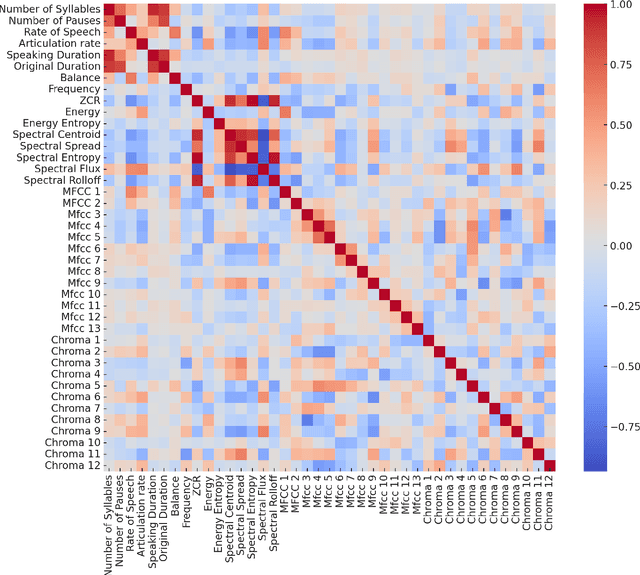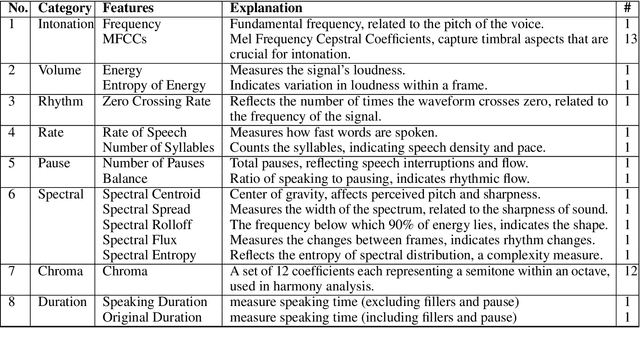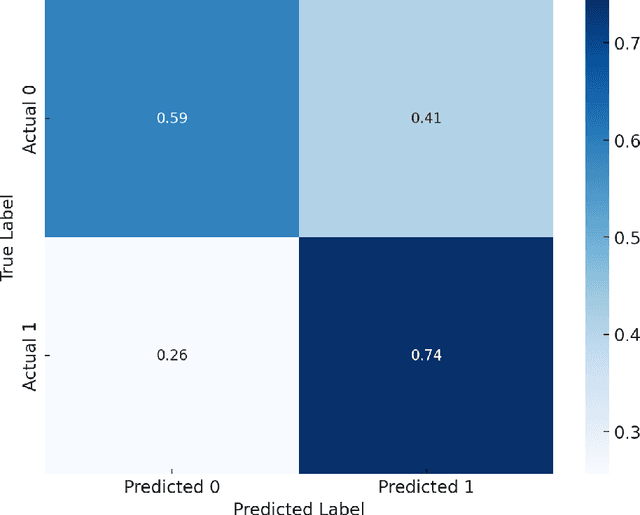Exploring Speech Pattern Disorders in Autism using Machine Learning
Paper and Code
May 03, 2024



Diagnosing autism spectrum disorder (ASD) by identifying abnormal speech patterns from examiner-patient dialogues presents significant challenges due to the subtle and diverse manifestations of speech-related symptoms in affected individuals. This study presents a comprehensive approach to identify distinctive speech patterns through the analysis of examiner-patient dialogues. Utilizing a dataset of recorded dialogues, we extracted 40 speech-related features, categorized into frequency, zero-crossing rate, energy, spectral characteristics, Mel Frequency Cepstral Coefficients (MFCCs), and balance. These features encompass various aspects of speech such as intonation, volume, rhythm, and speech rate, reflecting the complex nature of communicative behaviors in ASD. We employed machine learning for both classification and regression tasks to analyze these speech features. The classification model aimed to differentiate between ASD and non-ASD cases, achieving an accuracy of 87.75%. Regression models were developed to predict speech pattern related variables and a composite score from all variables, facilitating a deeper understanding of the speech dynamics associated with ASD. The effectiveness of machine learning in interpreting intricate speech patterns and the high classification accuracy underscore the potential of computational methods in supporting the diagnostic processes for ASD. This approach not only aids in early detection but also contributes to personalized treatment planning by providing insights into the speech and communication profiles of individuals with ASD.
 Add to Chrome
Add to Chrome Add to Firefox
Add to Firefox Add to Edge
Add to Edge